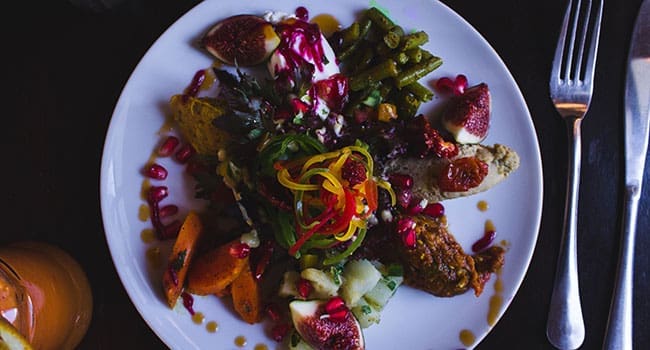 How do we reconcile the growing popularity of halal foods in North America with the increasing number of attacks on mosques and the dreadful shootings in Quebec City?
How do we reconcile the growing popularity of halal foods in North America with the increasing number of attacks on mosques and the dreadful shootings in Quebec City?
In the United States alone, more than 120 mosques have been attacked in the last two years. Regrettably, we’re seeing the same pattern in Canada.
But as the number of hate crimes directed at Muslims increases at an alarming rate, sales of food prepared in accordance with Islamic law are rising by 15 percent a year, on average. In Canada, halal food sales now exceed $1 billion – and that will likely continue to grow rapidly.
As these two trends rise simultaneously, it’s reassuring to note the resilience in the halal food sales numbers.
This rise isn’t simply due to an increase of the Muslim population in Canada. Curious millennials are exploring food options, including halal. Gourmets and individuals with a keen interest in food have also converted to halal foods.
The California-based Halal Guys restaurant chain now has more 50 outlets. Based on their market traction, they’ll open more than 300 more restaurants over the next decade, some in Canada. Obviously, this chain and other operations like it are attractive to foodies.
While halal meals and products can be found at larger Canadian grocery chains like Loblaws, Sobeys and Metro, halal isn’t completely mainstream yet.
Some of the world’s largest food processors, including Mondelez International and Nestle, sell a modestly low number of food products. Most processors remain committed to traditional market segments. Developing new food product lines can be costly.
In addition, a general misunderstanding of the halal market means many food businesses consider it an afterthought at best.
Overall, then, the halal market in Canada is severely underserved.
But the growing demand is spawning new services. In fact, one of the Quebec City shooting victims, Azzedine Soufiane, had opened the first halal food store in that region.
There are several halal cuisines. Customs vary between regions such as Pakistan, Turkey, the Middle East, North Africa, Bangladesh and India. Preparing food in accordance with Islamic law has different interpretations, making things complicated.
Traceability is also tricky. Consumers understandably seek evidence that practices are sound, from production to processing to distribution to retail. Canada adopted new labelling rules for halal products just last year. But the effectiveness of these rules is unclear, since the certification body cited on labels is not rigorously regulated, generating ambiguity and confusion.
The morality of halal foods is also contested. Islamic slaughtering practices have been condemned by several interest groups. For many, cutting and bleeding an animal to death is cruel and inhumane.
Nonetheless, the momentum behind halal food sales may offer hope. Can the increased popularity of halal foods offset the mounting cases of hatred towards Islam?
While religion and food become more decoupled in the western world, showcasing halal foods provides a window into a religion that’s often misunderstood. Food unites communities and allows for a better appreciation of cultural history. In this process, it’s almost impossible to set aside values and beliefs. Food is much more than a simple aspect for many. Food shows how pluralistic societies can serve multi-faceted cultures. Food, at its core, is about sharing and connecting. It’s a powerful medium that can transcend hate, fear, love, phobia and distrust.
To be realistic, the acceptance of different cultures’ culinary traditions doesn’t necessarily lead to a more harmonious society. But it can help. Food can foster awareness and peace.
Cooking, the choice of ingredients, and how food is prepared and consumed tell us much about how people live. An association between people and food easily becomes a cultural blueprint for a society.
Failing to offer halal foods can suppress and marginalize certain values and customs. Canadian multiculturalism is about embracing diversity and that must extend to our dinner plates.
An increasing number of Canadians are embracing Islamic culinary values. Maybe more food connections will curb the chances of witnessing yet another barbaric, appalling act of violence.
Dr. Sylvain Charlebois is senior director of the agri-food analytics lab and a professor in food distribution and policy at Dalhousie University.
Sylvain is a Troy Media contributor. Why aren’t you?
The views, opinions and positions expressed by columnists and contributors are the author’s alone. They do not inherently or expressly reflect the views, opinions and/or positions of our publication.


